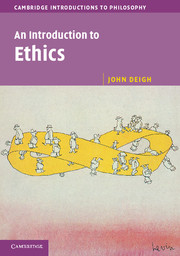4 - Utilitarianism
Published online by Cambridge University Press: 05 June 2012
Summary
Impartiality
Both egoism and eudaimonism share an outlook of self-concern. They both identify the perspective from which a person judges what ought to be done as that of someone concerned with how best to promote his own good. On either theory, then, the highest good for a person is that person's own good, whether this be his own happiness or his own well-being. Hence, on either theory, ethical considerations are understood to have the backing of reason insofar as they help to advance this good.
The self-concerned outlook prevailed in ancient ethics, for eudaimonism was its dominant theory. Modern ethics, by contrast, has been marked by a shift away from this outlook. Eudaimonism no longer dominates the field, and while egoism has continued to have supporters throughout the modern period, theories that presuppose a different outlook from that of self-concern have eclipsed it. These later theories do not identify the perspective from which a person judges what ought to be done as that of someone concerned with how best to advance his own good. Nor do they explain reason's backing of ethical considerations by showing how those considerations help to advance that good. To explain this backing modern moral philosophers have supposed, instead, that ethical considerations speak to some other element in human personality than concern about one's own good. Some philosophers have placed this element within the powers of reason themselves and supposed that we have a special rational capacity for knowing our duty.
- Type
- Chapter
- Information
- An Introduction to Ethics , pp. 93 - 122Publisher: Cambridge University PressPrint publication year: 2010



